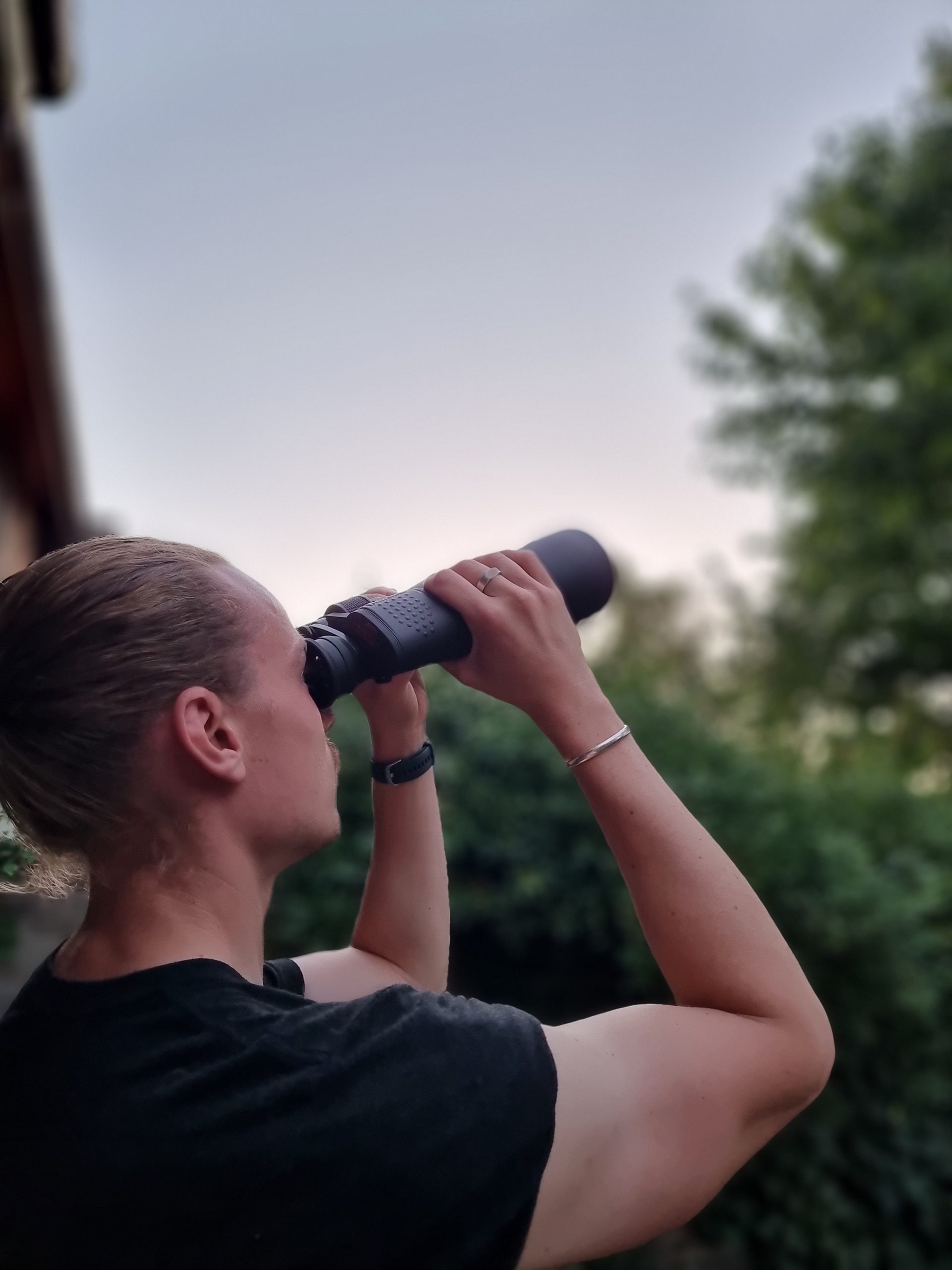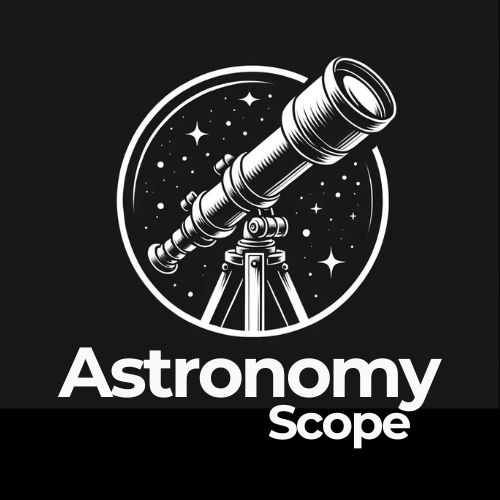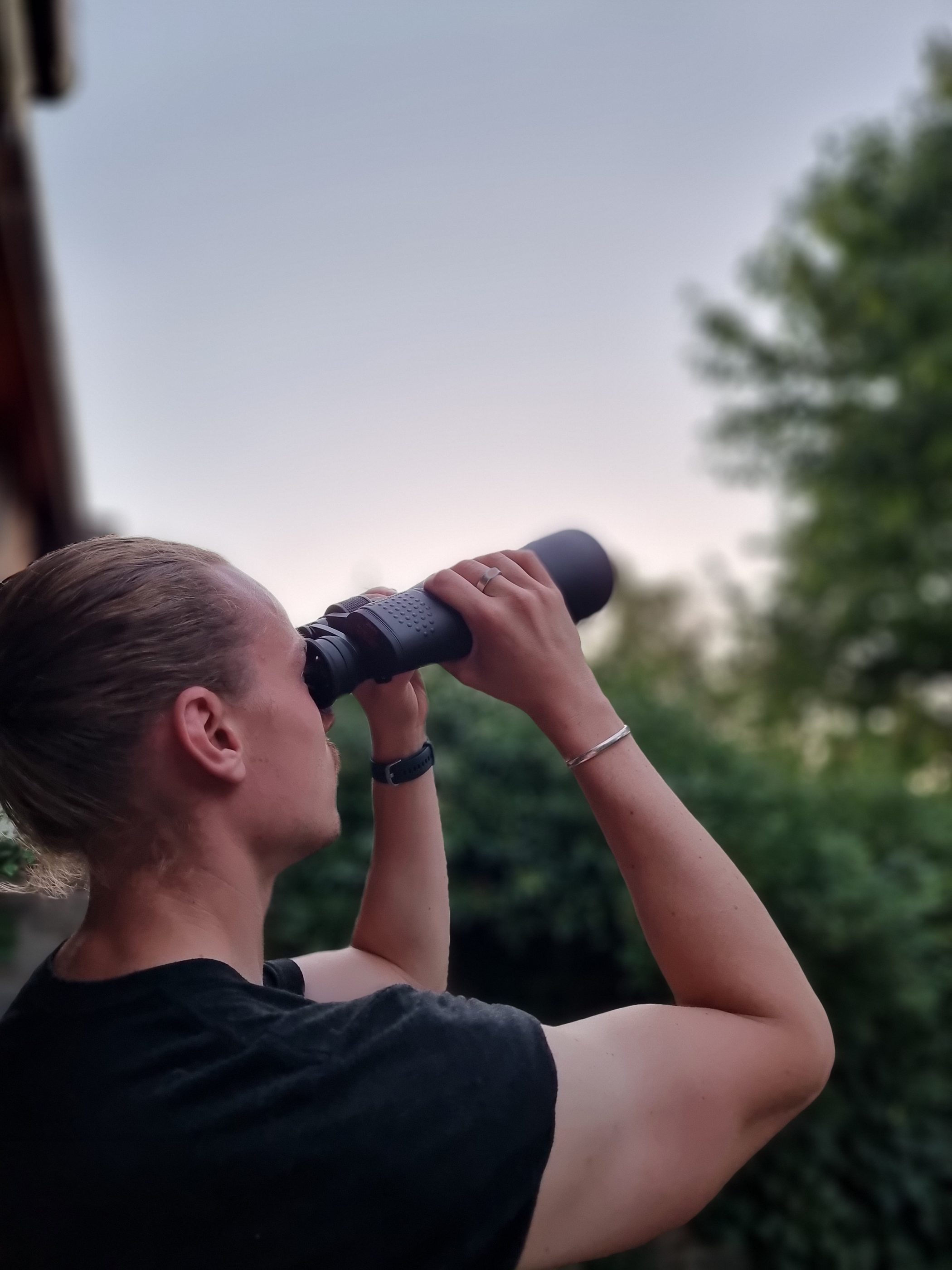Just because they have to live and work in zero gravity doesn’t mean astronauts can’t take care of daily hygiene necessities. In the same vein, even if they have access to hygiene essentials, the process isn’t exactly the same as it is on Earth. Teeth brushing is one such example.
So, how do astronauts brush their teeth? Astronauts brush their teeth in a very similar fashion to down on Earth. They use the same tools (toothpaste, a toothbrush and water), though, they do need to overcome the effects of zero gravity by stabilizing them using Velcro/or a wall.
At the same time, astronauts have to keep resources in mind. Besides, all hygiene products are luxuries in outer space – once they’re gone, they’re gone!
Chances are you still have some questions; I certainly did.
So let’s continue to explore this intriguing topic and challenge for astronauts.
How Do You Brush Your Teeth In Space?
Brushing your teeth on Earth is pretty simple, but the lack of gravity in space can make the process more time-consuming. Most astronauts will Velcro or secure their individual tools such as a water bag or toothpaste tube to a wall to ensure they don’t float away. Then they’ll lightly squeeze a small amount of water onto the bristles, along with a mild amount of toothpaste to follow.
Each astronaut seems to have little variations in how they go about brushing their teeth, but the process is generally the same.
The biggest obstacle, of course, comes from the zero-gravity environment.
Although there’s a step in place for each part of brushing your teeth, it isn’t uncommon for water, toothpaste, or even your toothbrush to try and float away on you.
There are quite a few obstacles to living on a space station that is much more challenging than brushing your teeth, but the process definitely takes longer than what we’re all used to.
Regarding many aspects of life in outer space, NASA has been working on new ways to make life more comfortable for astronauts during their time on the station.
For the most part, astronauts have enough toothpaste at all times, but there are times it may need to be rationed further if supplies run low between shipments.
Astronauts have dedicated hygiene areas on the space station that are designed to make hygiene routines in space a little easier.
It allows astronauts to keep all of their tools in place, minimizing the amount of time they spend wrestling with the process.
There isn’t just one solution to keeping your teeth clean in space either, as NASA has engineered multiple methods that help astronauts keep up with their daily hygiene.
How Often Do Astronauts Brush Their Teeth?
Astronauts brush their teeth on the same schedule as they do back home, but there’s always the potential for this schedule to change due to available resources. They do their best to brush their teeth twice per day, once in the morning and evening. With the understanding of how precious every resource is in outer space, they never use too much in one sitting.
Only minimal amounts of water and toothpaste are used for their daily hygiene, and this also ensures there’s enough to go around until the next shipment is needed.
Living in outer space requires sticking to rigorous routines, so the human body stays clean and healthy.
Brushing your teeth in outer space isn’t too difficult and doesn’t take up a lot of time, but it does take some time to adjust to the new process.
It’s also vital to ensure your body is functioning at its best, as they don’t have access to extensive medical care on the space station.
If something were to happen to their teeth, they could end up in an uncomfortable situation for a long time.
Do Astronauts Swallow Their Toothpaste?
Astronauts do tend to swallow their toothpaste. Although their toothpaste is slightly different and has been designed to be safe to do so. If using a standard toothpaste, they will generally spit it out.
Considering the low gravity environment, toothpaste isn’t as easy to rinse out of the mouth in the way that we’re used to.
Although it’s not impossible, NASA has provided multiple solutions to this question. Astronauts could rinse out their mouths with water, but this could be deemed a waste, so alternatives are preferred.
In the past, NASA developed toothpaste that can be swallowed with no potential harm to the body.
That isn’t the only product available for brushing your teeth.
In our current era, astronauts are able to take whichever toothpaste brand they prefer to outer space.
With the minimal amount that’s needed to brush your teeth, having enough on the space station generally isn’t a problem.
The astronauts never run into issues with water consumption as they’re quite meticulous about managing the resource, so swallowing toothpaste doesn’t have to be too much of a challenge.
Some astronauts may not prefer to swallow their toothpaste, but most will so they don’t have to deal with the residue-like feeling that toothpaste can leave behind.
This also isn’t so much of an issue because astronauts use very small amounts of toothpaste at a time.
Overall, brushing your teeth in space is pretty much the same; it just comes with a few extra steps and tools to get it done.
Back on Earth, we’re generally advised not to swallow toothpaste for numerous reasons, and this rule is the same in space, depending on the type of toothpaste.
Each astronaut could potentially use a different kind of toothpaste, and while some may be safe to swallow, others are not.
The only toothpaste that’s generally safe to swallow are the ones specifically made for outer space.
What Type Of Toothpaste Do Astronauts Use?
After years of trial and error, astronauts have multiple toothpaste options to choose from. They can either go with the same kind they use at home, chewable toothpaste, or NASA’s own toothpaste called NASAdent, which is crafted for optimal functionality in outer space.
They may not have had as many options in the early days of space travel, but nowadays, they aren’t limited by the types of toothpaste that are available.
It’s possible that this may change in the future if space agencies engineer a more viable toothpaste option, but the current processes in place seem to be working just fine.
From another perspective, some toothpaste may be more difficult to manage depending on the substance’s viscosity, but astronauts work with minimal amounts to ensure excess doesn’t float away.
Zero gravity may bring some additional challenges, but astronauts quickly adapt to this environment and get used to their daily routines without too much trouble.
Although most astronauts may use their preferred toothpaste, it doesn’t mean they don’t keep alternatives on board.
Chewable toothpaste is an excellent option as it doesn’t require any water and doesn’t cause a mess, making it one of the easiest options to dispose of after use.
Astronauts’ lives continue to get more comfortable with the more knowledge we gain about space, and brushing their teeth is a pretty similar process, despite the lack of gravity.
Lastly
The way astronauts brush their teeth in outer space has evolved over the years.
With a better understanding of the low gravity environment and plenty of trial and error, astronauts have an excellent system for their daily hygiene routines.
Astronauts have used numerous types of toothpaste alternatives over the years for the sake of efficiency and resourcefulness, and they’re pretty good about making a tube of toothpaste last as long as possible.
The way astronauts brush their teeth may change in the future, but for now, it isn’t much different than what we do at home.
Want to learn more about astronauts? Then my other guides may be of interest:
- Do Astronauts Shower In Space?
- Do Astronauts Wash Their Clothes In Space?
- Do Astronauts Wear Diapers?
- Do Female Astronauts Wear Bras In Space?
- Can Astronauts Burp In Space?
- Can Astronauts Fart In Space?
- How Do Astronauts Communicate In Space?

Hey, my name is Jeremy. I’m a passionate and seasoned astronomer who loves nothing more than observing the night sky. I also love researching, learning, and writing all things Space and the Universe. I created Astronomy Scope to share my knowledge, experience, suggestions, and recommendations of what I have learned along the way while helping anyone to get into and maximize their enjoyment of the hobby.

